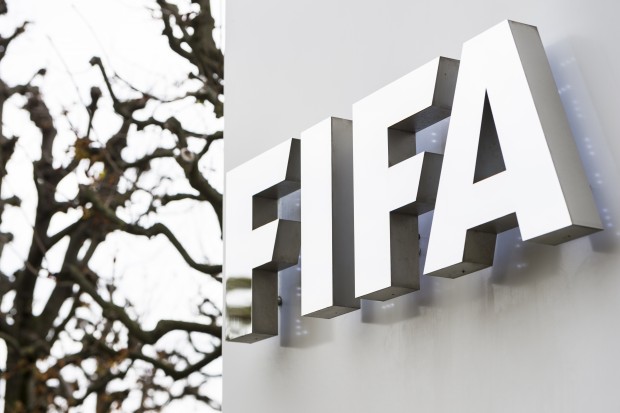
FILE – This is a Thursday, Oct. 8, 2015 file photo of the FIFA logo pictured at the FIFA headquarters in Zurich, Switzerland. AP File photo
LONDON, England—The English Football Association will ask FIFA to investigate whether former players have dementia as a consequence of brain damage from playing the game.
Three members of England’s 1966 World Cup squad—Martin Peters, Nobby Stiles, Ray Wilson—have Alzheimer’s, family members told Saturday’s Daily Mirror newspaper.
Concerns have grown in Britain about the impact of head injuries after campaigning by the family of former England striker Jeff Astle, whose death in 2002 was attributed to repeatedly heading heavy, leather balls.
English FA medical head Ian Beasley is seeking assistance from world soccer’s governing body to help determine if there are definitive long-term health dangers from playing the game, and if prospective players should be warned.
“We are taking some research questions to FIFA imminently to ask, ‘Can you help us in trying to find out if dementia is more common in ex-professional footballers?'” Beasley told The Associated Press on Saturday.
“The trouble is we just don’t know … it’s a massive undertaking to try and decide whether there’s an association between having played professional football and cognitive decline, dementia you might call it commonly—brain damage causing functional impairment over time. We just don’t know. It’s always tempting to say ‘It must be.’ But we’re not sure.”
Last year, the U.S. Soccer Federation recommended a ban on headers for players 10 and under in a bid to address concerns about the impact of head injuries.
Beasley, who is also the England team doctor, wants researchers to assess whether the severity of any brain damage depends on which position the person played, how many games they played, and at which level.
“The hope is (Fifa) will tell us one way or another,” Beasley said. “This is a health and safety issue in the end, and that’s what it will come down to. You may still want to be a professional footballer but at least we can advise you what the chances are of something irreversible happening to you.”
Fifa chief medical officer Jiri Dvorak was not aware of the FA seeking specific research into links between footballers’ brain trauma and dementia.
“We have very little evidence that would substantiate that assumption for football players,” Dvorak told the AP at the Football Medicine Strategies conference in London. “But that’s the reason why we are also studying the long-term changes of former professional male and female footballers. Not only for brain dysfunction but also early onset of osteoarthritis.
“We are looking at the long-term changes without having any suspicions yet.”